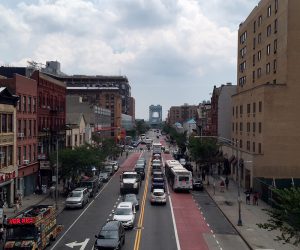
Click right up! Test your knowledge and acumen:
Is the Robert Mueller testimony as popular as the Final Four™? Why, or why not? Explain your answer, include examples supporting your argument.
If an assessment of current knowledge about happenings relevant to the health and future of the planet and/or the republic was a test, how many could we leave blank and still pass? The desire to know, to want to know, creates a fickle predilection for desired outcomes. If a question (or an investigation of the facts surrounding a question) doesn’t turn out the way we want, we probably would rather not know, thanks anyway. We’re all set! Continue:
Is Puerto Rico a state? Then why does it have a governor? Bonus question: why is he resigning?
Self-driving cars are self-refuting. Not a question, though perhaps a tautology.
Why are people being locked in camps at the Southern U.S. border, and it is this a more important, equally important, or less important question than why are they leaving their country of origin? Show your work.
The Earth’s Moon has been an object of fascination for millennia. When we conquered it by going there, did we simply decide it could now be reasonably ignored, or had mystery and imagination reached its zenith? Hint: Remember the corollary based on the rubber/glue axiom.
True or false: Paper straws signify a convergence of elegance, utility and mindfulness.
Requesting anonymity so as to ensure against retribution in order to make known a crime or misdeed makes a source more or less believable? Keeping in mind that asking questions bears a direct relationship to having the questions answered, at what point (if at all) is the journalist’s culpability in protecting an anonymous source outweighed by the need for transparency about the source’s motives and intentions?
Identity Hong Kong on a map.
Finally, what is the prevailing direction of the trade winds?
Image: Author photo, Park Ave at 125th street
